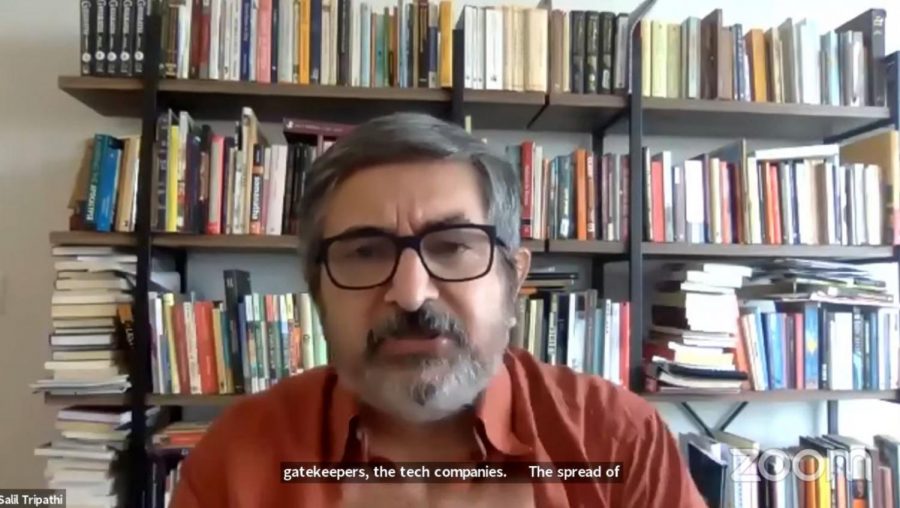Speakers at Dismantling Global Hindutva explain differences between Hindutva, Hinduism
September 13, 2021
Speakers at the Dismantling Global Hindutva conference discussed the difference between Hinduism and Hindutva, how disinformation about the ideologies spread and the future of political discourse in India.
The conference, which was co-sponsored by UT and 49+ other universities, took place virtually from Sept. 10-12 and featured topics such as the origins of Hindutva, the caste system, government propaganda and white supremacy. Throughout the conference, the speakers defined Hinduism as strictly a religion and way of life, in comparison to Hindutva, a right-wing political ideology stemming from a radicalized branch of Hinduism. The conference sparked debate among students at UT about the possibility of it promoting anti-Hinduism rhetoric.
Balmurli Natrajan, a professor of anthropology at William Paterson University of New Jersey, said that Hindutva is a dangerous ideology that uses Hinduism as a weapon to propagate religious homogeneity.
“Hindutva is an ideology in charge of the Indian state that it is a major threat to democracy and rights guaranteed in the Indian constitution,” Natrajan said. “It uses strong, proven methods to silence all who value equity and to free the torrent of hate.”
Natrajan said Hindutva began spreading globally from the Indian government and gained traction with Hindus who do not live in India, specifically in the United States and the United Kingdom.
M. Krishna, an Indian Carnatic writer, vocalist and author, spoke at the conference about his views regarding the comparison between Hindutva and Hinduism.
“Hinduism and Hindutva are not the same,” Krishna said. “This (belief) is propagated from the very right-wing position.”
Krishna said Hindutva is a violent political tool used by the Indian government to manipulate citizens and establish Hinduism as the supreme religion.
Salil Tripathi, an Indian author, said social media plays a large role in spreading disinformation on the difference between Hinduism and Hindutva.
“I hope one day we will be in a position to be in a room and have a civilized dialogue with one another without hurling abuse at one another,” Tripathi said.
Tripathi ended his speech by stating disinformation can spread quickly and leads to lies about Hindutva and Hinduism taking hold.
“The internet makes bigotry more widespread than it was originally,” Tripathi said. “It makes (bigotry) respectable and makes it the center (of information).”



